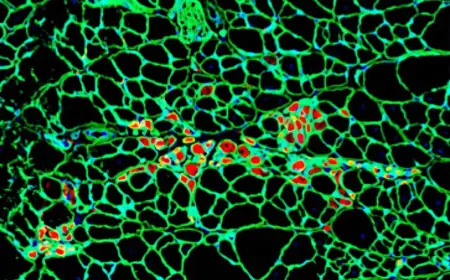Liver Cancer: 60% of Cases Can Be Prevented — Scientists Warn

According to a study by The Lancet commission, by 2050 the number of people worldwide diagnosed with liver cancer could double, reaching 1.5 million. However, scientists note that up to 60% of these cases could be prevented by changing lifestyle habits.
August 4, 2025 – 09:31
Liver Cancer — a Dangerous and Widespread Disease
Liver cancer ranks sixth among the most common cancers worldwide and third in mortality rate. This type of cancer is difficult to treat — only about 5–30% of patients survive for 5 years or more. Men suffer from this disease 2–3 times more often than women.
Main Causes
Previously, liver cancer was mostly linked to viral hepatitis B and C or alcohol use. However, in recent years obesity — specifically non-alcoholic fatty liver disease (NAFLD) — has become the leading cause. Currently, 40% of adults worldwide have NAFLD, and one-third of them develop a more severe form called steatohepatitis. Doctors call it a “silent killer” because it shows no symptoms but can progress to liver cirrhosis and then cancer.
Statistics and Future Projections
The share of cases related to alcohol and cirrhosis was 19% in 2022 and is expected to rise to 21% by 2050.
Cases caused by hepatitis B may decrease from 39% to 37%.
Cases linked to hepatitis C may fall from 29% to 26%.
What Should Be Done?
Scientists emphasize that lifestyle changes — quitting or limiting alcohol, eating a balanced diet, and increasing physical activity — can prevent liver cancer. These measures could reduce new cases by 2–5% annually, potentially preventing 17.3 million liver cancer cases and saving 15.1 million lives over 25 years.
Challenges Exist
Implementing these recommendations is difficult. For example, in China, which accounts for 42.4% of liver cancer cases worldwide, the incidence decreased by only 0.3% annually from 1990 to 2021. In Europe and North America, incidence rates are actually increasing by 1–2.8% annually, due to rising alcohol consumption and the growing number of NAFLD cases.
How Feasible Is Prevention?
As noted by the journal Naked Science, obesity has become widespread even in laboratory animals over the past 50 years, indicating that factors beyond diet and exercise, which are not fully controllable, also play a role. Therefore, implementing The Lancet commission’s recommendations remains a serious challenge.



























